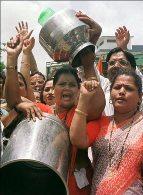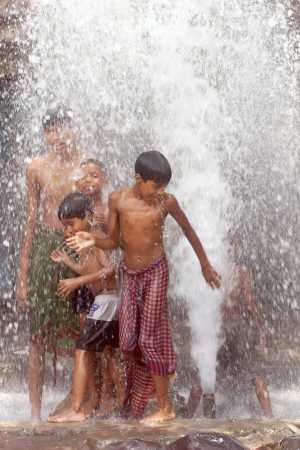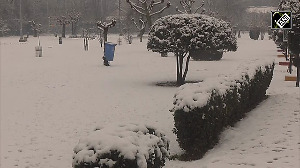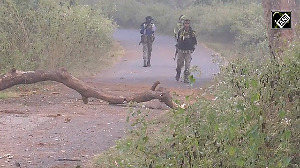 The Municipal Corporation of Greater Mumbai (MCGM) said that the city will not get more than 2,900 mld of water till mid July.
The Municipal Corporation of Greater Mumbai (MCGM) said that the city will not get more than 2,900 mld of water till mid July.
"Due to scanty rainfall the city received 9,36,504 million liters of water in 2009, which is much less than the average supply. The city requires 13,00,000 mld of water every year. The civic body will not be able to increase the daily water supply to the city in excess of 2,900 million liters till July 15," Municipal Commissioner Swadheen Kshatriya said.
The city receives 3,450 mld of water per day against the demand of 4,300 mld of water per day. But presently with the 15 and 30 per cent water cut for residential and commercial users respectively, the city receives 2,900 mld of water per day.
Kshatriya was addressing an interactive meeting on 'The Problems of Water Supply and Cleanliness' organised by Indian Merchants Chamber, Priyadarshni Academy, Rotary Club of Bombay, Property Owners Association, Nepean Sea Road Citizens Forum and other prominent NGOs.
"Maharashtra is paying a heavy price for its high degree of industrialisation and urbanisation. The pressures created for building infrastructure for the growing population is having a severe impact on environment, this is evident in the deteriorating quality of water," IMC president Gul Kripalani said.
The city receives water through pipelines from far away reservoirs such as Tansa, Vaitarna, Bhatsa, Tulsi and Vihar. But the catchment areas of these reservoirs received less rainfall due to failure of monsoon.
"Mumbai's growing water shortage is a potentially dangerous trigger for nationwide social unrest. People receive water only for few hours in a day, forcing the residents to buy water at exorbitant prices from touts or water tank owners," Kripalani said.
MCGM plans to augment water supply by implementing additional reservoir projects -- Middle Vaitarna (455 mld), Gargai (455 mld) and Pinjal (868 mld), Kshatriya said, adding, "Work on these projects was progressing and will be completed as scheduled." "We are setting up large water recycling facilities through public-private partnership (PPP) mode at Ghatkopar, Mulund, Versova and Colaba for processing the waste and grey water, which was at present flowing into the sea," Kshatriya said.
On the successful model of the desalination plant set up by Chennai Petroleum Corporation, we are setting up similar projects in Mumbai, setting up borewells and use of rainwater harvesting techniques, he said.
"All these measures will be able to provide sufficient water to Mumbai city in the next quarter century," Kshatriya said.










 © 2025 Rediff.com -
© 2025 Rediff.com -